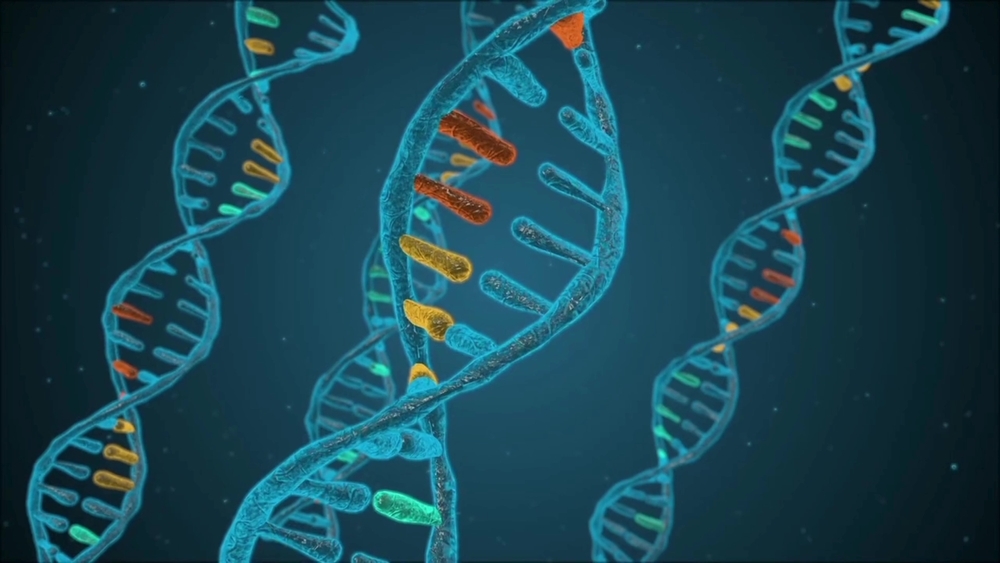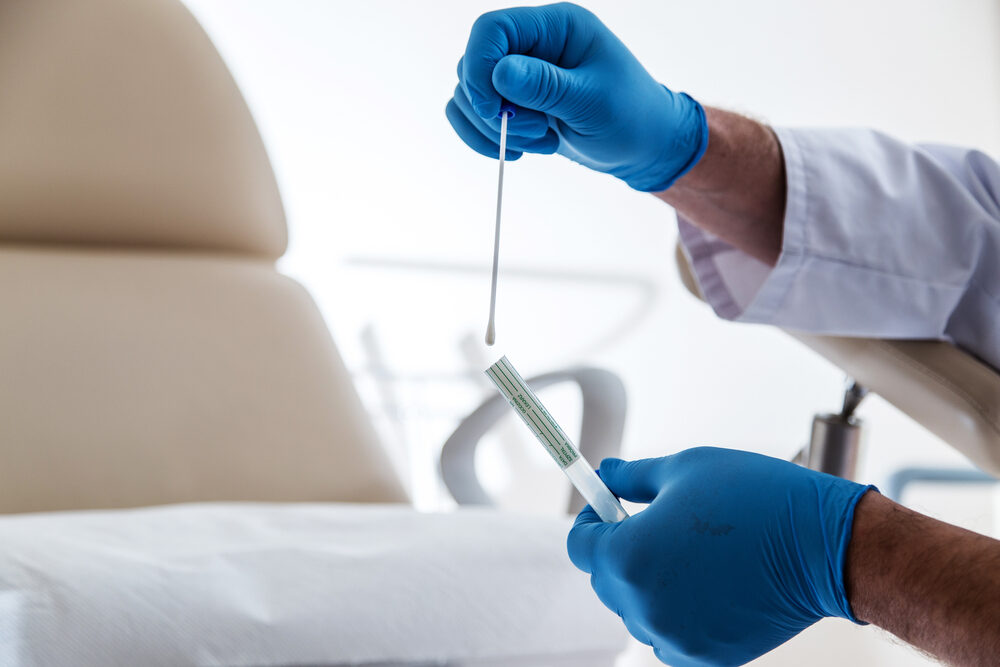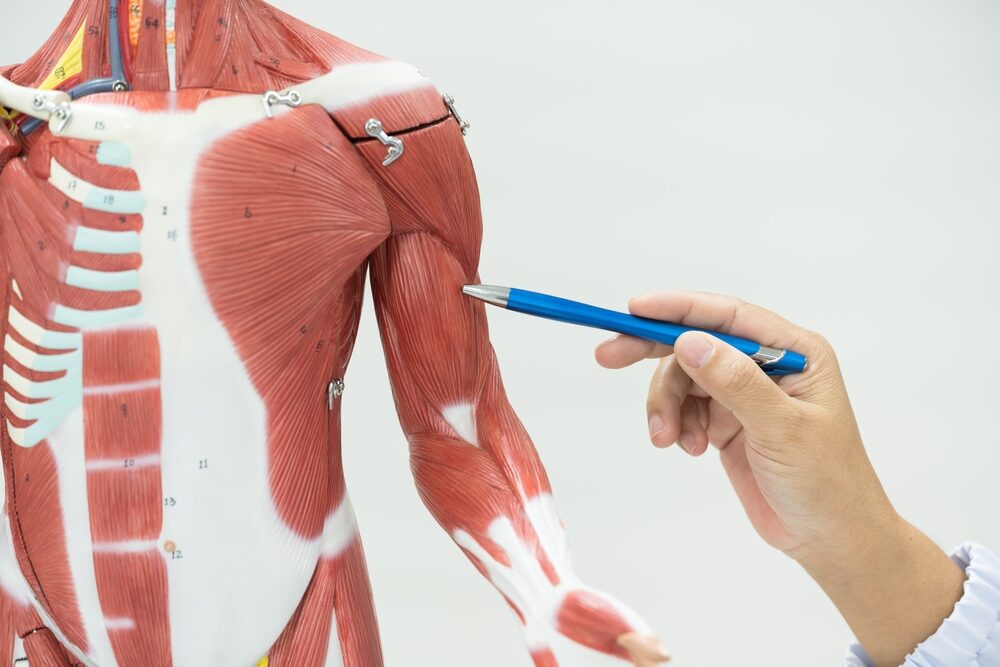
☝️ The most important facts in brief
- Human geneticists are mainly involved in diagnostics and counselling. They work with patients who are affected by a genetic disease or who are at risk of developing one.
- As a specialist in human genetics, you will advise families with genetic risk factors for certain diseases on family planning, among other things.
- A whole series of ethical questions arise in connection with genetic tests, which a human geneticist must take into account in the course of his work.
- Further training to become a specialist in human genetics takes 5 years and requires a degree in medicine.
📖 Table of contents
As a specialist in human genetics, you deal with the detection of genetic diseases and the counselling of affected patients and their families. You have the latest diagnostic methods at your disposal. Among other things, you will analyse chromosomes and the exact composition of human DNA. Specialist training to become a specialist in human genetics takes 5 years and enables you to work in a clinic, as a practising human geneticist or in research.
Are you interested in studying medicine?
We will be happy to advise you free of charge about your options for studying medicine, including advice on studying medicine in another EU country, which is fully recognised in Germany.
What exactly is human genetics?
Human genetics is a medical speciality that deals with the diagnosis and treatment of genetic diseases. In human genetics, diseases caused by heredity and new genetic mutations are diagnosed and analysed. Patients and, if necessary, their families are counselled on risk factors and prevention.
Your activities as a human geneticist
As a specialist in human genetics, you can work in various areas. You can work with patients as well as in the laboratory. Many human geneticists work in clinics, where they provide affected people with the necessary information on diseases and, if necessary, analyse their genetic material. Alternatively, you can also set up your own practice or have the opportunity to go into research and investigate the basics of genetics in more detail.
Human genetics in clinics
As a doctor of human genetics in large clinics, you can advise numerous patients and work together with doctors from different specialities in the diagnostic process. Families and individual patients come for genetic counselling and receive comprehensive support from you.
Practising human geneticists
As a registered medical specialist, you can open your own practice. Your work in such a practice usually consists of providing information on genetic diseases, counselling those directly or indirectly affected and, of course, diagnostics
Human genetic research
Human genetics is a field in which new discoveries are constantly being made. For example, effective treatment is now available for some diseases that were virtually a certain death sentence just a few years ago.
Scientific studies and laboratory work are an essential part of the everyday life of researching human geneticists.
Methods in human genetics
Various methods are used in human genetics to recognise genetic diseases. Specialists decide which method is most suitable depending on the area and the specific question. We will now introduce you to some of the typical methods that can be used to find out more about an individual's genetics.
Karyotyping
A karyogram is used to visualise an individual's chromosomes and examine them for structural anomalies. During your training as a specialist in human genetics, you will learn about both the normal karyogram and high-resolution methods for chromosome analysis, such as microarray analyses.
Molecular genetic diagnostics
Molecular genetic diagnostics involves analysing specific DNA sections. This includes PCR and sequencing. This form of diagnostics enables numerous mutations to be recognised in the laboratory.
FISH (fluorescence in situ hybridisation)
In so-called FISH analyses, fluorescent gene probes are used to make specific DNA sections visible. This makes it possible to specifically examine whether these sections are present, how frequently they occur and where they are localised. FISH analyses enable human geneticists to detect mutations that are not visible in a normal karyogram.
Prenatal diagnostics
Thanks to prenatal diagnostics, certain genetic diseases can already be identified in the unborn child. The sample is usually taken (usually by chorionic villus sampling or amniocentesis) by specialised gynaecologists. The material obtained is then analysed in human genetics within the previously agreed framework. Your task is then to inform the expectant parents about the results of the examination and provide comprehensive counselling on the possible consequences and options for treating the child.

Becoming a specialist in human genetics - the training programme
To become a specialist in human genetics, you must complete a medical degree and then a five-year specialist training programme. The training regulations stipulate what content is taught and in which area you have to work for how long. We will now introduce you to the two main stages of training in more detail.
Medical studies
The medical degree programme is the basic prerequisite for specialist training in human genetics. The degree programme lasts 6 years and comprises a pre-clinical part, in which the basics are taught, and a more practical clinical part, where numerous subjects such as internal medicine are taught, Oncology, pathology, Surgery and genetics are also taught.
Specialist training
You will complete the five-year period of further training as a specialist in human genetics while working as a junior doctor at a clinic. You will be required to work at selected training centres, in the laboratory and in areas of direct patient care and acquire the necessary specialist skills and knowledge.
Contents of specialist training in human genetics
You will learn the following training content, among other things, during practical activities at each training centre and while acquiring theoretical knowledge:
- Diagnostics of genetic diseases
- Counselling for those affected and their families
- Laboratory work and molecular genetics
- Recognising and treating genetic diseases of the skin, hair, teeth, eyes and ears
- Genetic abnormalities of the kidney and urinary tract
- Research into hereditary diseases
These and many other contents will prepare you perfectly for the completion of your specialist training and subsequent work in human genetics.
Career opportunities and salary for human geneticists
As a specialist in human genetics, you have excellent career opportunities. The earning potential depends on whether you work in a clinic, in research or in your own practice, but is generally comparable to the earnings of other specialisms. There is also the advantage that night and weekend shifts are rare in human genetics.
Genetic diseases that you are frequently confronted with in human genetics
As a specialist in human genetics, you will need to be familiar with numerous genetic diseases. Neurological and neuromuscular diseases, diseases of the skin, hair, teeth and connective tissue and much more will occupy you in your day-to-day work. We would now like to briefly introduce you to some of the typical diseases that you will have to deal with in patient care.
Trisomies
In a trisomy, a certain chromosome is not present twice, but three times. With most chromosomes, this leads to an early abortion, often so early that the woman affected does not even realise she is pregnant.
Only children with trisomy 21 (Down's syndrome), trisomy 18 (Edwards' syndrome) and trisomy 13 (Pätau's syndrome) are viable at all. In the case of trisomies 13 and 18, however, they usually die in the first months or years of life.
Cystic fibrosis
Cystic fibrosis, also known as mucoviscidosis, is a serious genetic metabolic disease. It usually manifests itself in the first year of life through thick mucus in the lungs and digestive problems. Ultimately, however, all of the body's endocrine glands are affected, including the pancreas, gall bladder and sweat glands.
Huntington's disease
Huntington's disease is one of the neurodegenerative diseases. It predominantly occurs at the age of 35-40 years and is inherited in an autosomal dominant manner. Huntington's disease is associated with motor disorders and psychological changes and ultimately leads to death. It is therefore common to find several sufferers in a family.
The disease can be diagnosed with certainty using a genetic test, but this requires some ethical considerations and usually psychological support, as a cure is not possible.
Haemophilia
In human genetics, you diagnose this blood clotting disorder and treat those affected. Haemophilia occurs almost exclusively in men, as the gene that causes it is located on the X chromosome. As women have two of these chromosomes (genotype XX), the healthy chromosome can compensate for the problem of the other. These women can then transmit the disease, but are not affected themselves. The man, on the other hand, has only one X chromosome (genotype XY). If this is affected, the man is also affected.
Muscular dystrophy
Muscular dystrophies are a group of genetic diseases that cause muscle weakness and wasting. For medical specialists, it is part of their job to recognise these diseases at an early stage and to provide those affected with comprehensive advice and treatment planning.
Fragile X syndrome
This syndrome leads to mental disability and behavioural problems. As a human geneticist, you recognise this disorder using genetic tests and advise families on inheritance and possible therapeutic measures.
Phenylketonuria
Phenylketonuria (PKU) must be recognised in early infancy and treated with a special diet in order to prevent severe mental disabilities. In PKU, the amino acid phenylalanine cannot be metabolised, which leads to accumulation in the body and thus to toxic effects in the brain. One of your most important tasks is therefore the early detection of PKU and comprehensive counselling of those affected.
Spinal muscular atrophy (SMA)
SMA is caused by genetic muscle wasting. The disease is caused by a mutation in a gene that produces a protein that is important for the maintenance of motor nerve cells. Without the protein, these cells gradually die.

Ethical issues in human genetics
Ethical issues are a key topic in human genetics. Knowledge about an individual's genetics can do a lot of good and ensure early treatment, for example, but it can also lead to problems and harm. We will now explain some of these problems.
Genetic discrimination
If certain genetic information about a patient is known, this could put them at a disadvantage with employers or insurance companies, for example. Doctors and human geneticists in particular must take great care not to cause any conflicts of interest here. Data protection therefore plays an important role in genetic counselling and diagnostics.
Prenatal diagnostics and pre-implantation diagnostics
Ethical questions regularly arise in connection with the diagnosis of unborn life. These methods make it possible to recognise genetic diseases before birth. In some cases, this results in the option of terminating the pregnancy. Specialists in human genetics are not allowed to give advice with a specific goal in mind, but must inform the expectant parents about all the options and consequences with an open mind. You will acquire important knowledge on how to deal with this area during your further training.
Right not to know
Potentially affected persons do not always want to receive all the information about their own genetics. This must be respected in all cases. In some cases, genetic diagnostics are also not permitted for children. An illustrative example of this is Huntington's disease: many sufferers with a family history of the disease do not want to know in advance whether they are likely to suffer from the as yet untreatable symptoms and ultimately die at around the age of 40.
Psychosocial effects of genetic risks
Anxiety and uncertainty are normal reactions of people who present to the human genetics department. In your specialist training centre, you will also be prepared to deal with these fears and help those affected. Appropriate psychological support is an important part of healthcare.
Free information material
Studying medicine abroad 🎉
Order your info pack now, find out more about the Studying medicine abroad and get started as a medical student!





